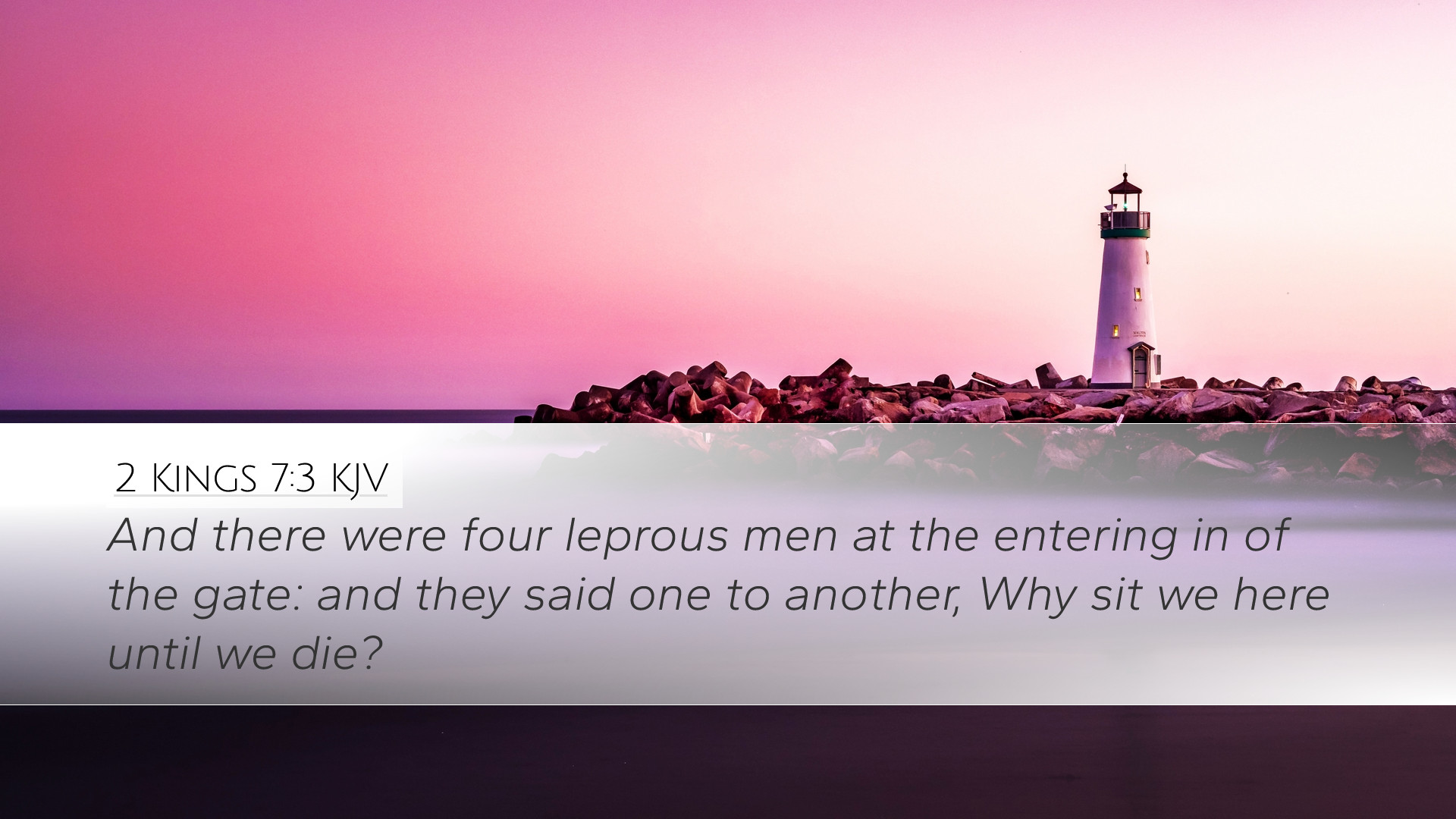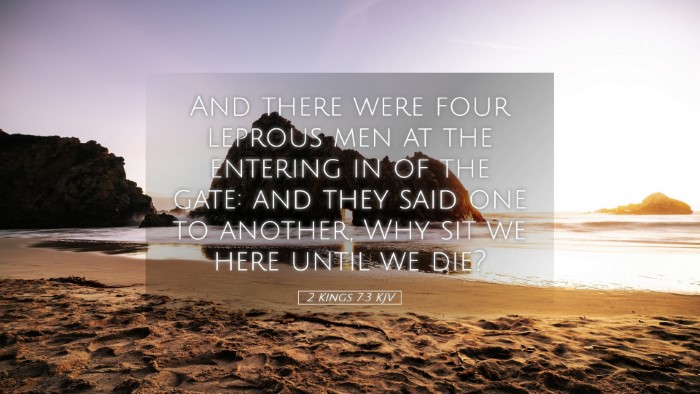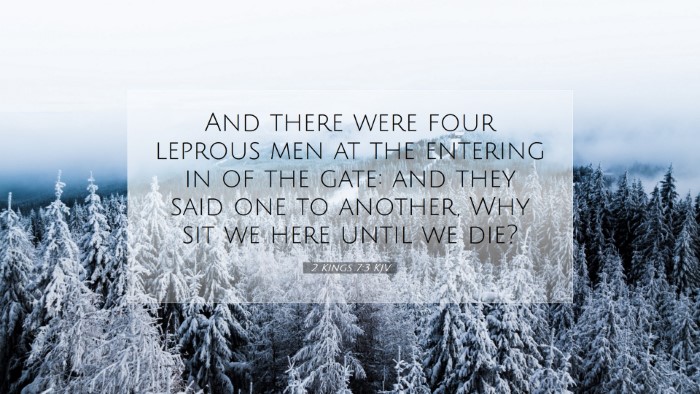Old Testament
Genesis Exodus Leviticus Numbers Deuteronomy Joshua Judges Ruth 1 Samuel 2 Samuel 1 Kings 2 Kings 1 Chronicles 2 Chronicles Ezra Nehemiah Esther Job Psalms Proverbs Ecclesiastes Song of Solomon Isaiah Jeremiah Lamentations Ezekiel Daniel Hosea Joel Amos Obadiah Jonah Micah Nahum Habakkuk Zephaniah Haggai Zechariah Malachi2 Kings 7:3
2 Kings 7:3 KJV
And there were four leprous men at the entering in of the gate: and they said one to another, Why sit we here until we die?
2 Kings 7:3 Bible Commentary
Commentary on 2 Kings 7:3
Verse: "Now there were four leprous men at the entrance of the gate: and they said one to another, Why sit we here until we die?" (2 Kings 7:3)
Introduction
This verse introduces a critical moment in a dire situation, emphasizing not only the plight of the lepers but also the broader socio-political context of Israel during the siege of Samaria by the Arameans. The lepers, marginalized and facing imminent death, symbolize despair yet also serve as catalysts for divine intervention and hope.
Context of the Passage
The background of this passage reveals a city under siege, where famine reigned and desperation grew. The inhabitants of Samaria faced extreme conditions, leading to severe acts of desperation. Within this setting, the lepers, representing those considered the most hopeless, engage in profound dialogue about their situation.
Insights from Commentaries
-
Matthew Henry:
Henry notes that the plight of the lepers serves to illustrate the condition of those who are spiritually poor and needy. Their decision to confront their grim reality reflects a form of faith, acknowledging their hopelessness while still seeking a response. This underscores the principle that even in the direst circumstances, turning to God, or taking action, can lead to divine intervention.
-
Albert Barnes:
Barnes highlights that leprosy in the Hebrew Bible is a symbol of sin and exclusion. The fact that these men are lepers emphasizes their social and spiritual exile. Their questioning, "Why sit we here until we die?" drives home the theological insight that complacency in the face of despair is not an option; action must be taken even when all seems hopeless. This challenges readers to understand that waiting passively can lead to spiritual stagnation.
-
Adam Clarke:
Clarke offers a practical observation about the lepers' strategic thinking; they weigh their options and decide that they have nothing to lose. Their context drives them to make a critical choice that leads to unexpected deliverance. Clarke’s analysis points out that the actions taken by the lepers ultimately result in saving not only themselves but also the starving citizens of Samaria. This highlights the theme of grace and mercy found in unexpected places.
Theological Reflections
This verse invites us to consider themes of hope, desperation, and divine providence. It reflects the belief that God can use the weak and the broken to bring about His purposes. The lepers’ dialogue not only illustrates their dire predicament but also represents the human tendency to wrestle with the question of action versus inaction in faith.
Moreover, the lepers' decision to risk entering the enemy camp—desperate for survival—serves as a metaphor for the Christian call to step out in faith, particularly in times of crisis and uncertainty. Their story is a striking reminder that God’s deliverance often comes through unexpected means and to those who dare to act when all seems lost.
Practical Applications
- Encouraging Action: Like the lepers, believers are encouraged to take initiative in their spiritual lives, even when circumstances appear bleak.
- Engaging with Marginalized Communities: The account of the lepers provides a poignant reminder to actively engage with those who are socially marginalized or struggling.
- Trusting Divine Timing: This passage reassures us that even when situations look hopeless, waiting on God while remaining proactive is crucial.
Conclusion
2 Kings 7:3 serves as a profound commentary on human despair, the necessity for action, and the unexpected ways God delivers His people. By reflecting on the insights from Matthew Henry, Albert Barnes, and Adam Clarke, we gain a richer understanding of how this scripture not only speaks to the historical context but also compels modern readers to examine their faith and response to adversity.


